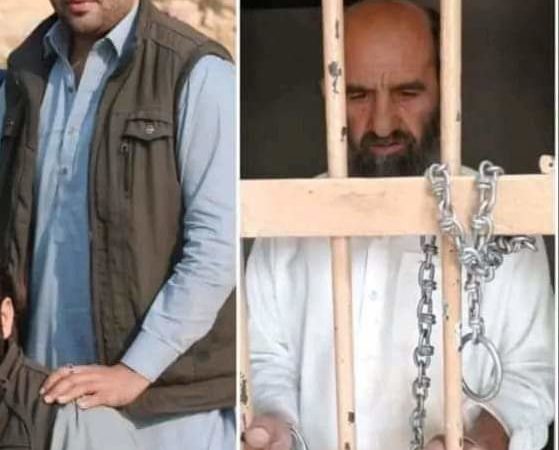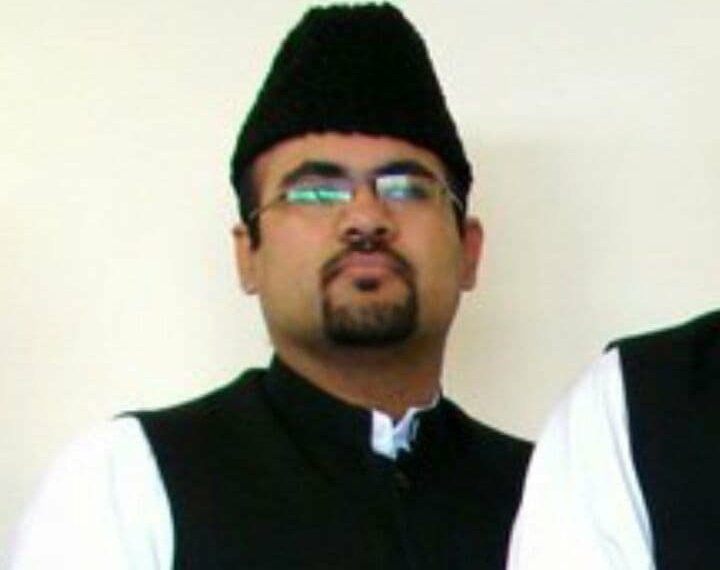Ahmadi gay MP resigns, quits politics after conviction for child sexual assault
Imran Ahmad Khan, the gay Ahmadi disgraced MP expelled from the Conservative party after being found guilty of sexually assaulting a 15-year-old boy, has announced he will resign, triggering a byelection in the Yorkshire seat of Wakefield.
Although Khan is appealing against April 11 conviction, he announced he would be “withdrawing from political life” and would write to the House of Commons authorities to officially tender his resignation.
Khan, 48, was found guilty of sexually assaulting a 15-year-old boy on April 11. He will be sentenced on another date to be fixed in this regard.
In this whole episode of Imran being charged, tried, convicted and resigned, Jamaat-e-Ahmadiyya has not issued any statement in this regard. Normally in cases of its normal members having no public stature are expelled from the Jamaat on normal issues like
Khan had denied the charges but was convicted after a trial. Southwark Crown Court, UK, was told that he forced the youngster to drink gin, dragged him upstairs and asked him to watch pornography before assaulting him.
Following the verdict, the Conservative Party, Khan’s political party, said he has been expelled from the party with immediate effect. Khan was elected as MP in 2019. The MP was found guilty after about five hours of deliberations.
After the verdict, Conservative MP Crispin Blunt showed solidarity with Khan and criticized the court decision by a tweet. Blunt, chair of the all-party parliamentary group (APPG) on LGBTQ+ rights, had to say sorry and withdraw his statement after an outcry from MPS across the political spectrum. He also resigned as chair of the LGBTQ+ parliamentary group and withdrew comments that a fellow MP and member of his LGBTQ+ group found guilty of sexual assault was a victim of a “miscarriage of justice”.
Related:
- Ahmadi gay MP faces another allegation of sexual assault in UK
- Ahmadi gay MP found guilty of sex assault on a boy in UK
Announcing the verdict Justice Baker said he would sentence Khan at a date to be fixed and he warned him “all sentencing options, including immediate custody, are being considered by the court”.
Khan initially requested the court to have the case heard in secrecy, arguing that as an Ahmadi, both the consumption of alcohol and homosexuality are strictly prohibited, and the reporting of those matters would expose him to a risk to his safety both here and abroad. He also attempted to have the age of his victim withheld.
However, his applications were rejected by Westminster Magistrates’ Court Chief Magistrate, Paul Goldspring, who said: “Damage to reputation is not a ground for making of an order, open justice is and should remain a cornerstone of democracy and the rule of law.”
He tried again to have the case heard anonymously on the first day of the trial three weeks back. A temporary banning order was put in place but was lifted at the end of the second day of the trial.
According to the charges, Khan had gone to the boy’s bed and “reached in and touched his legs, reaching for, or actually touching, his groin”. The complainant, now 29, said the attack had left him “scared and shocked”. In evidence, the victim said Khan had started “slow caressing” him and continued despite being asked to stop. “His breathing was getting quite heavy and I kept pushing his hand away and pushing it back and it would keep coming,” the complainant said. The court was told that police were called at the time but the 15 years old did not want to pursue the case.
The complainant said he contacted the Conservative party in 2019 after learning Khan was participating in the general election. He then called the police after Khan was elected to the parliament.
The older brother of the complainant told the court that the MP had asked if he was “a true Scotsman” and lifted his kilt, before “lunging” at him at the same party.
Another witness before the court accused Khan of performing a sex act on him after a party in Peshawar, Pakistan, in 2010 where the pair had drunk whisky and smoked marijuana.
Khan claimed he had only touched the teenager’s elbow when the boy had become “extremely upset” after a conversation about his confused sexuality.
Khan made no comment as he left the court, however, his solicitors later issued a statement saying he “maintains his innocence and will be appealing as soon as possible”.
Staffordshire Police said it began its investigation into Khan after the victim came forward in December 2019. In a statement, the police said: “We know how hard it is to come forward and report these offences, but it is vital to bring those responsible for these offences to justice.
“We would like to commend the victim for reporting the offence committed against him – he has shown real bravery and courage in doing so. “This case has had a huge impact on the victim and his family for a number of years”, police said.
Khan will be thrown out of the House of Commons if he is handed a prison sentence of more than a year. Khan, who is on unconditional bail, has been suspended by the Conservative Party and sits in the Commons as an independent.
After his elections, Jamaat-e-Ahmadiyya UK congratulated Khan. Its official Twitter handle – @AhmadiyyaUK – on December 13, 2019, said, “Congratulations, best wishes and prayers for success in building a peaceful world to @imranahmadkhan, on becoming Member of Parliament for Wakefield. Imran Ahmad-Khan is the first-ever member of Ahmadiyya Muslim Community elected as a Member of British Parliament.” However, after the news of him being found guilty, Jamaat-e-Ahmadiyya UK deleted the tweet in a bid to prove that he is no more part of the Jamaat. Imran Khan’s brother was married to one of the daughters of Mirza Tahir Ahmad, the fourth leader of the Ahmadiyya community.
Khan’s father belonged to Khyber Pakhtunkhawa province of Pakistan and had moved to England.




